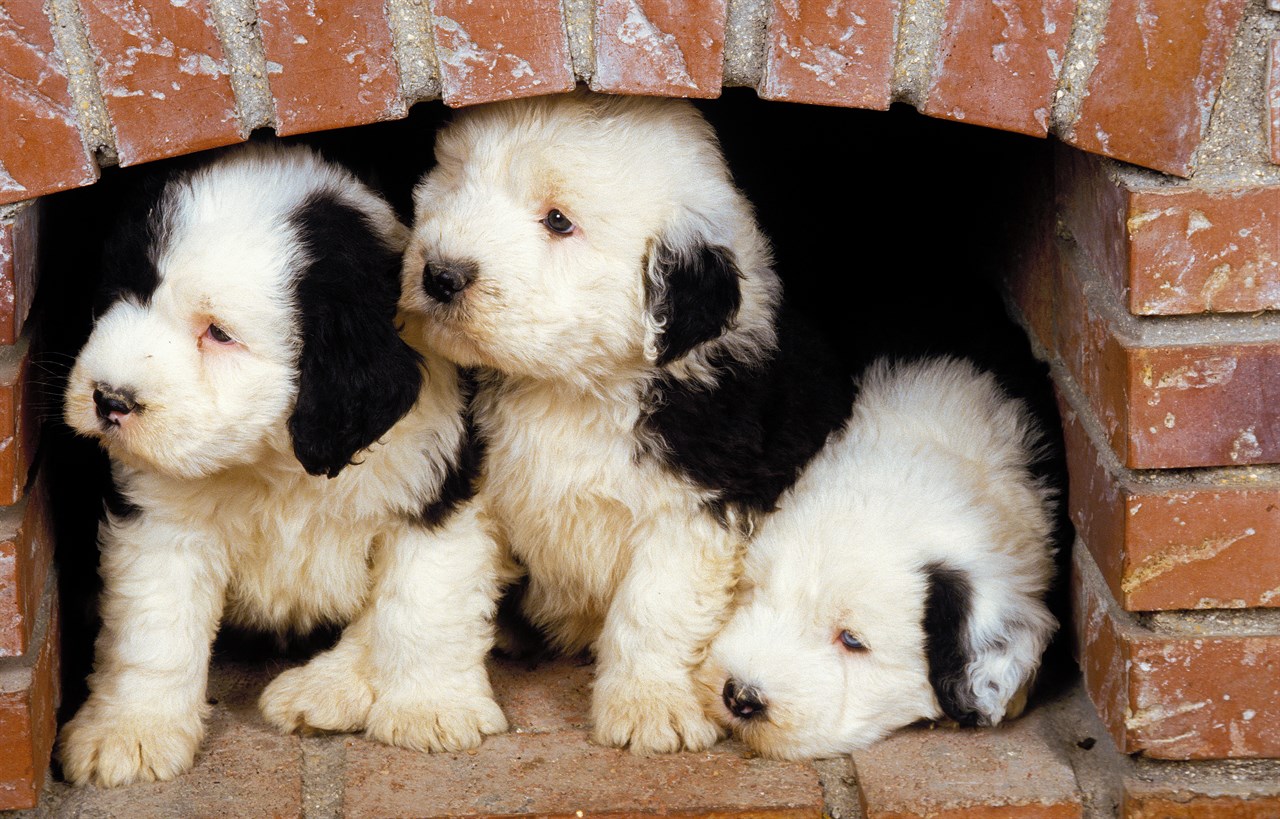Barking Habits of the Old English Sheepdog

Barking is a natural form of communication for dogs, and Old English Sheepdogs are no exception. Understanding the barking habits of this breed can help you manage their vocalisations effectively and ensure a peaceful coexistence with your furry friend.
Alertness
Old English Sheepdogs have a protective instinct, and they are often vigilant and watchful. As a result, they may bark when they perceive something unusual or when they believe there's a potential threat, such as a stranger approaching the home or unfamiliar sounds.
Territorial Behaviour
These dogs can be territorial, and they may bark to establish their presence and defend their territory. This territorial barking can be triggered by people or animals encroaching on their perceived space.
Separation Anxiety
Old English Sheepdogs are known for their strong bonds with their human family members. When left alone for extended periods, they may experience separation anxiety, leading to barking and other signs of distress.
Playfulness
OESs have a playful nature, and they may bark during play sessions or when they are excited. This is usually a happy and harmless form of barking.
Communication
Like all dogs, Old English Sheepdogs use barking to communicate their needs and feelings. They may bark when they are hungry, thirsty, need to go outside for a bathroom break, or want attention.
Do Old English Sheepdogs bark a lot?
Old English Sheepdogs can have a tendency to bark, especially when they are in protective or alert mode. However, the frequency and intensity of their barking can vary from one individual to another. Some may be more vocal than others. Proper socialisation and training can help minimise excessive barking.
Training
Early obedience training can help teach your OES when barking is acceptable and when it's not. Commands like "quiet" or "enough" can be useful in this regard.
Socialisation
Expose your Old English Sheepdog to various people, animals, and situations from a young age. This can help reduce territorial and anxious barking.
Exercise and Mental Stimulation
Ensure that your OES gets enough physical exercise and mental stimulation. A tired dog is less likely to bark excessively out of boredom or pent-up energy.
Address Separation Anxiety
If your Old English Sheepdog exhibits barking due to separation anxiety, work on gradually acclimating them to being alone and consider consulting a professional dog trainer or behaviourist for guidance.
Consult a Professional
If your Old English Sheepdog's barking becomes a persistent problem or is causing issues with neighbours, consider seeking advice from a professional dog trainer or behaviourist who specialises in barking issues.
In conclusion, while Old English Sheepdogs can be prone to barking, their vocalisations are often a response to specific triggers or needs. With proper training, socialisation, and attention to their individual needs, you can help manage and reduce excessive barking in this breed, ensuring a harmonious living environment for both you and your furry companion.
Old English Sheepdog puppies for sale
- Find Old English Sheepdog puppies for sale in ACT
- Find Old English Sheepdog puppies for sale in NSW
- Find Old English Sheepdog puppies for sale in NT
- Find Old English Sheepdog puppies for sale in QLD
- Find Old English Sheepdog puppies for sale in SA
- Find Old English Sheepdog puppies for sale in TAS
- Find Old English Sheepdog puppies for sale in VIC
- Find Old English Sheepdog puppies for sale in WA